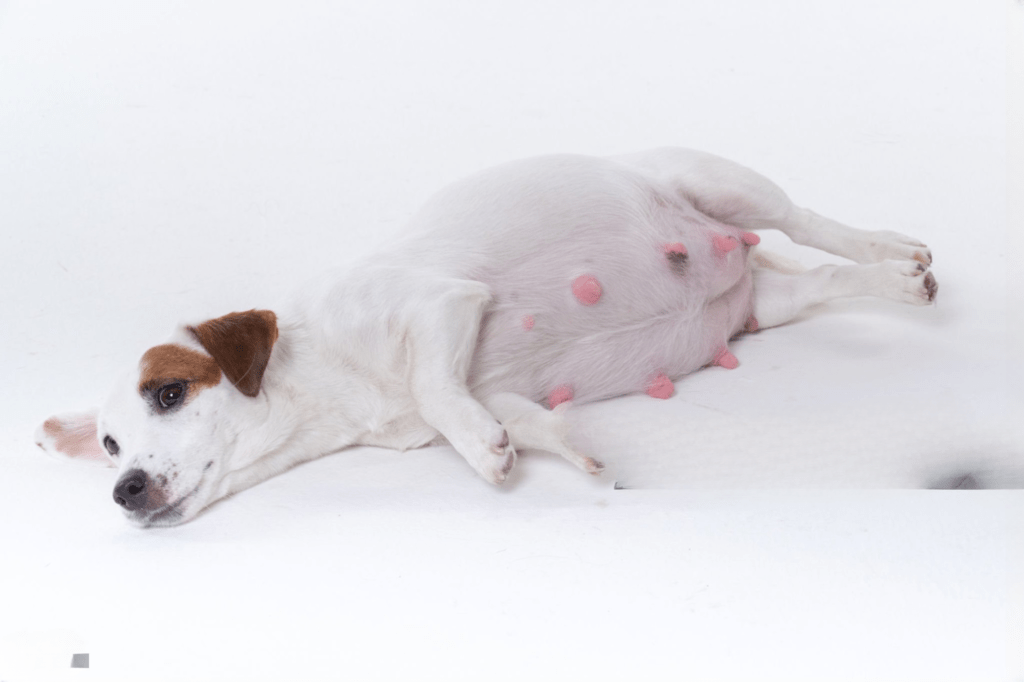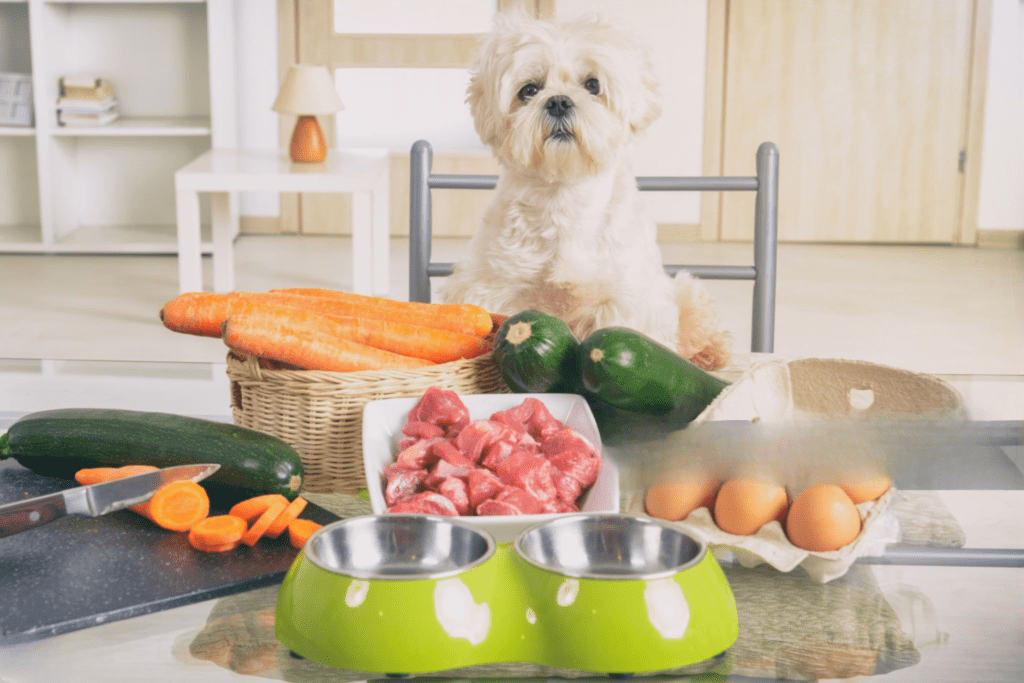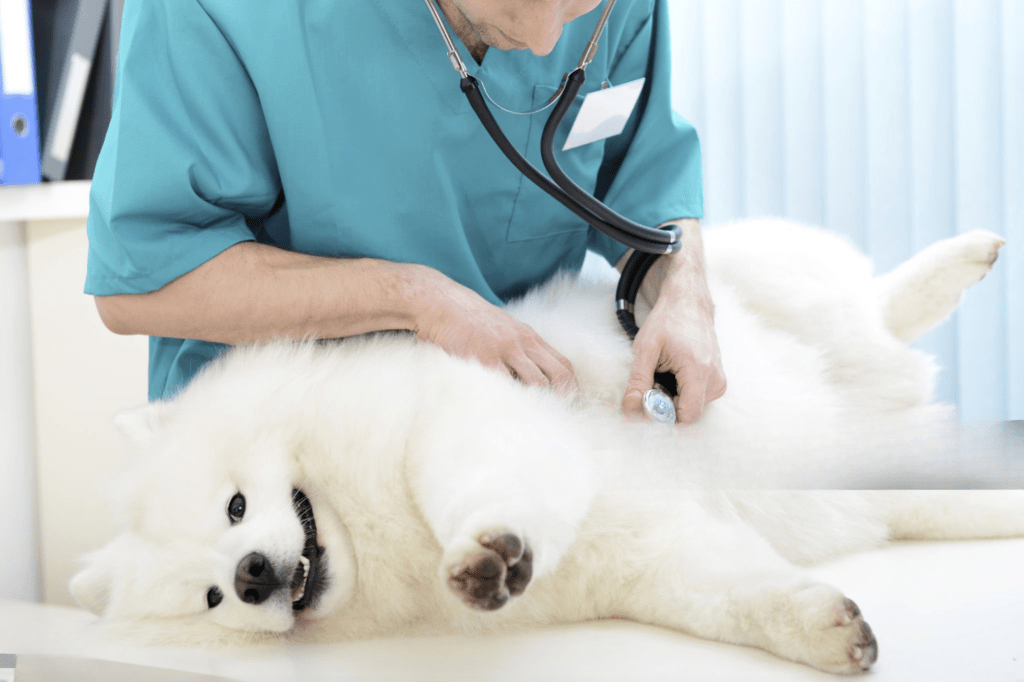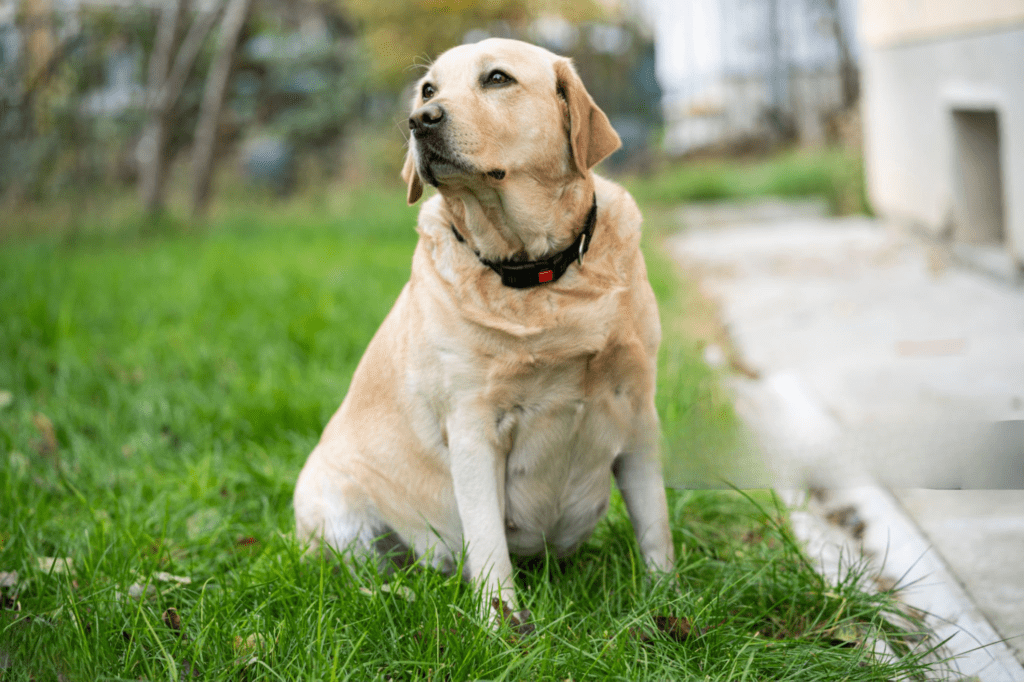Dog pregnant undergo a gestation period of 63 days, with puppies born after a vet check-up, ensuring the health of both the mother and their puppies.
Dogs normally take about 63 days, or almost two months, to gestate a puppy . Nevertheless, a dog’s exact pregnancy duration may differ based on breed, stature, and personal preferences.
To ensure the health of the mother and her puppies, appropriate prenatal care must be given, including correct nourishment and regular veterinary check-ups.
What are some signs that a dog is pregnant?


Some signs that a dog is pregnant include :-
1. Enlarged or discoloured nipples :- A pregnant dog’s nipples will grow larger and have a rosier hue, making them stand out more.
2. Weight gain :- Before the symptoms of pregnancy become apparent, a pregnant dog will begin to put on weight around her waist and abdomen.
3. Swollen belly :- A firmer, rounder tummy indicates pregnancy.
4. Increased appetite :- A dog that is pregnant could begin to eat more than normal.
5. Fatigue :- A pregnant dog may experience fatigue more quickly than usual.
To guarantee that the mother and her puppies receive the best care possible, you must take your dog to the vet for a prenatal check-up if you think she may be pregnant.
How long does it take for a dog to show signs of pregnancy?
Usually between four and five weeks into their pregnancies, dogs begin to exhibit modest symptoms
1. However, until about day 40 of pregnancy, the physical changes might not be apparent
2. The first indication that your dog is expecting is when her nipples “pink up,” becoming more noticeable and rosy.
3. Additional indicators of pregnancy include fatigue, weight gain, bloated abdomen, and increased hunger.
How many puppies can a dog have?
A dog can have one or many puppies, depending on the breed, size, age, and health of the parent. Some canines may give birth to just one puppy, but others may have up to 24 in a single litter. That being said, all dog breeds have an average litter size of five or six puppies.
It is significant to remember that a litter’s number of puppies can be influenced by a number of variables, including the mother’s age, size, breed, and health. For the mother’s and her puppies’ health, it is crucial to give appropriate prenatal care, which includes dietary guidance and veterinary examinations.
What should I feed my pregnant dog?


A dog who is pregnant needs a lot of care, and her food is one of the most important things to consider. A pregnant dog’s diet should consist of about 20% fat and 30% protein. A healthy diet will make labor easier for your expectant dog and enhance milk production.
The following food recommendations are for you to adhere to while your dog is pregnant:
1. Commercially produced dog food :- Provided it’s a high-quality diet, a commercially produced dog food will work just fine.
2. Soluble carbs :- Ensure that the food your dog is eating includes more soluble carbs than usual.
3. Sufficient nutrition :- In order to keep your dog’s blood sugar from falling too low while she is pregnant, her food consumption must be sufficient.
4. Increase food intake :- You should give your pregnant dog’s diet a 20–30% boost in food after the first four weeks.
5. Feed more frequently :- Your dog’s stomach will get smaller by week six as her puppies start to grow. This implies that you should start giving her smaller meals more frequently. The recommended minimum frequency of three times per day is four to five times per day.
Making ensuring your expectant dog always has access to fresh water is also crucial . See your veterinarian if you have any worries about the food your dog is eating.
When should I take my pregnant dog to the vet?


Two to three weeks after mating, you should take your pregnant dog for a prenatal visit at the vet. Your veterinarian can answer any questions you may have about what to expect during this appointment, including what kind of food is appropriate for pregnant dogs to eat. During her pregnancy, your dog will probably need to visit the veterinarian a few times. As early as day 21 of pregnancy, an ultrasound or blood test might be performed to confirm it. Your veterinarian can take x-rays to ascertain the number and size of the pups about 45 days into the pregnancy.
If your dog exhibits vaginal discharge or bleeding while she is pregnant, you should speak with your veterinarian. Do not delay to take your pregnant dog to the vet if you see any symptoms of illness. In a pregnant dog, things that might wait a few days could be more serious. Both the mother dog and the puppies may suffer from complications.
How long does it take for a dog to give birth?
A dog normally takes 63 days, or around 9 weeks, to gestate . There are three steps in the delivery procedure. Up to 12 hours may pass during the first stage of labor, during which the dog may seem restless and breathe loudly. The birth of the puppies marks the second stage of labor. Although puppies are typically born 30 to 60 minutes apart, the mother dog may take up to two hours off between litters. The expulsion of the placenta, which typically occurs within 15 minutes of each puppy’s birth, is the third stage of labor. Do not delay to take your pregnant dog to the vet if you see any symptoms of illness. Problems may hurt the mother dog as well as the puppies.
How can I help my dog during delivery?


It’s critical to maintain your composure and show your dog support during the birthing procedure.
The following advice can help you support your dog when giving birth :-
1. Set up a whelping box :- Your dog can give birth in a secure and pleasant environment in a whelping box. It should have high sides to keep puppies from straying and be roomy enough for your dog to walk around in. For comfort, you might line the box with blankets or fresh towels.
2. Keep an eye on your dog :- Your dog may seem agitated and exhibit profuse panting during the initial phase of labor. She will start to push and deliver the puppies in the second stage. You want to keep an eye on her development and ensure that every puppy is given securely.
3. Help if needed :- Although most dogs don’t need it, you might have to intervene if your dog is having trouble giving birth to a puppy. Get in touch with your veterinarian right away if a puppy has been stuck in the birth canal for longer than thirty minutes. While your dog pushes one, you can help by gently pulling on the puppy.
4. Maintain cleanliness :- After a puppy is born, use a fresh cloth to wipe the area around its mouth and nose. This will facilitate breathing and shield the puppy from illness.
5. Take care of the mother and puppies :- Your dog will want a lot of rest and food to recuperate following birth. Fresh water and food should be given to her, and you should keep an eye out for any symptoms of disease. Additionally, the puppies must be fed frequently and kept warm.
Recall that you should seek guidance from your veterinarian if you have any worries or inquiries concerning your dog’s pregnancy or delivery .

